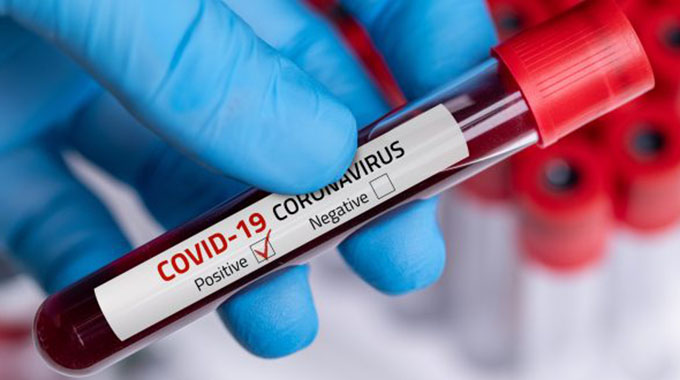Editorial Comment: Compulsion will stop reckless infections

Fighting and containing a highly contagious disease is, in theory, relatively simple.
You keep infected people isolated from the rest of the population and you quarantine those who might be infected away from both the sick and well until you know which group they are in.
This is exactly what the Public Health regulations issued this week to prevent and contain Covid-19 do.
While most people, because they are sensible, do not want to fall sick and because they do not want to infect anyone else, will cooperate with the public health authorities there are those who will not, as we have already discovered.
But under these regulations those refusing to cooperate now do not have the option.
Under the Public Health Act, which was brought into line with the Constitution in 2018 by being completely redrafted, once a disease has been declared a “formidable epidemic disease”, as Covid-19 has now been declared, then it is legally possible to impose compulsory testing, quarantining and isolation and to take other steps to slow or prevent transmission.
And that declaration is quite reasonable since, as the regulations carefully note, Covid-19 was declared a global pandemic by the World Health Organisation on 11 March this year.
The regulations define two groups of “enforcement officers”. One group is relatively small, the professional medical officers who run public health in the nation, each district and each city, town and rural district council.
They are the givers of orders. The second group is much larger, every police officer, peace officer and member of a municipal police force; they are the enforcers of the orders of the first group.
So if the medical officer orders you to be tested, and you refuse, you will find yourself constrained by a couple of police officers while a sample is taken. If the medical officer orders you to stay at home in quarantine until the results are available, and you refuse, you can be collected by the police and held in suitable confinement in a designated quarantine station.
If you are infected you can be isolated at home, if you agree and you do not have any special problem that needs complex nursing, but if you refuse you can be locked up in an isolation facility.
Refusal is also criminalised with fines ranging up to $36 000 and a year’s jail, but that will come much later and there will be trial and maybe an appeal.
In the meantime, you have been tested, quarantined and isolated voluntarily or forcibly.
Most people will find the whole process infinitely more pleasant if they co-operate from the beginning.
The medical authorities do not want to clog their limited treatment facilities with cooperative people who agree to stay at home in quarantine, which means you do stay at home and you do not allow visitors, except the good friend who drops off your groceries at your closed front door, but who does not meet you.
For the majority of infected people who need to wrestle with a bad bout of flu, but do not need special care, they can have the luxury of doing this in their own bed, if they cooperate and can be trusted.
But if you mess the authorities around, if you want to wander around infecting others, if you show you cannot be trusted, then you will find life far tougher and police officers can even arrest you without a warrant.
The fact that you may be in court when all this is over facing criminal charges does not alter the fact that you will be detained in suitable premises, which might not be very luxurious, while you are being tested or while you are ill.
Some have queried under what authority the Government can order the closure of bars, gyms, clubs and the like. Well under the Civil Protection Act rational and reasonable orders can be given if there is a state of national disaster and the public health regulations allow the Health Minister, who is the point person between the medical experts and the Government, after consulting the President and conforming to Presidential directives, to do the same.
So either way, the Government is covered. And the Constitution itself allows, so long as the action is reasonable and proportionate to the threat, limits on certain rights such as the freedom of assembly and association in times of war and the like and during public health emergencies.
The actions so far taken by the Government fall well within the constitutional conditions.
There has been concern about some areas, such as the farmers’ vegetable market in Mbare and the large flea markets. Well under the regulations the Harare director of health services now has the responsibility of policing the vegetable market.
We need to ensure farmers can still deliver food we need to eat, but it has to be done in a way that protects the farmers, buyers and eventual consumers.
The city managed to do this in the last cholera outbreak and can no doubt do so again. And the director can now summon the police to enforce any rational directives he makes to ensure safety.
The informal sector presents special problems, since so many involved live from hand-to-mouth. The President acknowledged this in his major address on measures being taken.
But health experts can probably come up with measures that eliminate risk without a shut down, so long as these can be enforced, as they now can be.
In fact, Harare’s director of health services has made it clear that he sees places like the giant flea markets as primarily an engineering problem, with vendors physically separated by a safe distance.
The same would go for buses and kombis; we need public transport but simple rules on disinfecting them and at least stopping obviously sick people from boarding can go a long way to reducing risk.
Lockdowns may be necessary, but in one sense they are a sign of failure, that too many people want to cheat and ignore advice and directives.
Disruption and inconvenience we will have and must have while we fight this outbreak, but the degree of disruption depends on all of us following clear rules without argument and without cheating.
Compulsion is there to overcome the non-co-operative. Most of us do not want to fall sick, and if we do we want to get better and not harm anyone else.
We will cooperate, and we are probably grateful that those who will not can be made to do so.








Comments